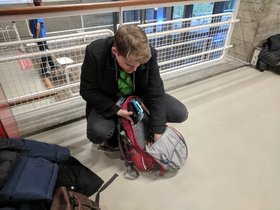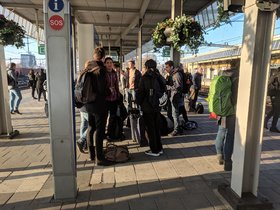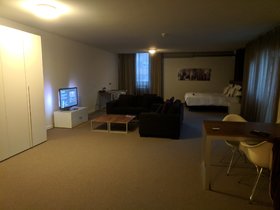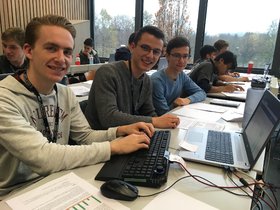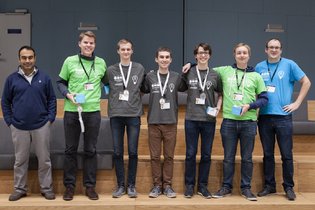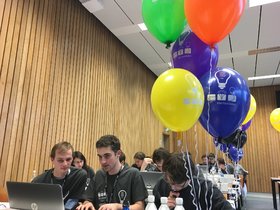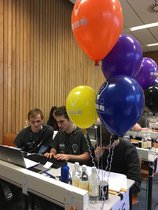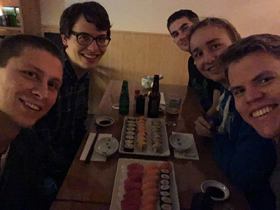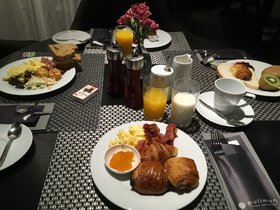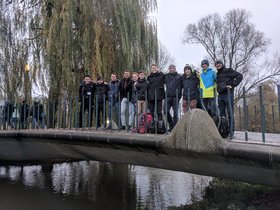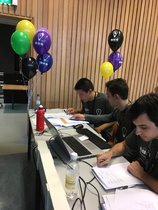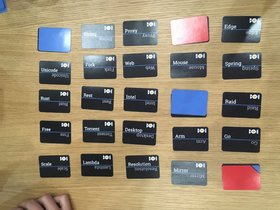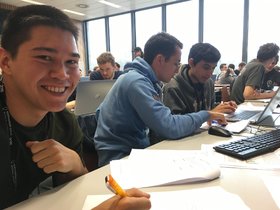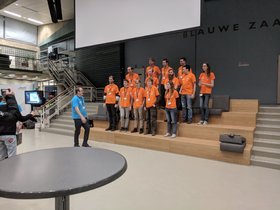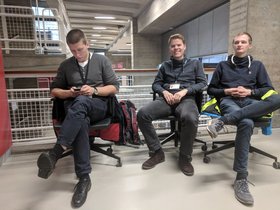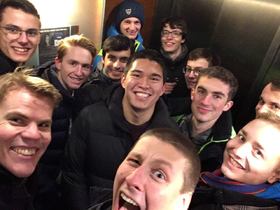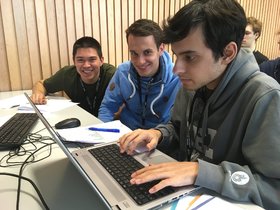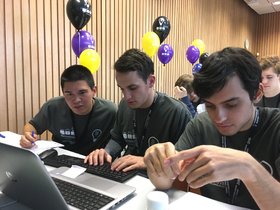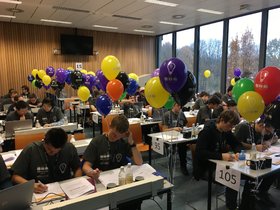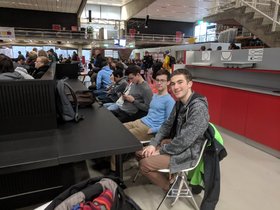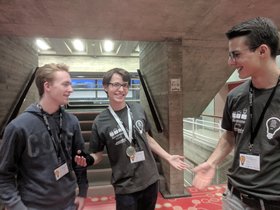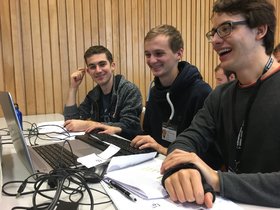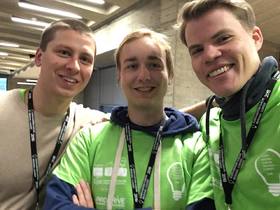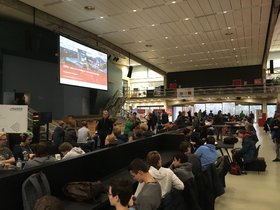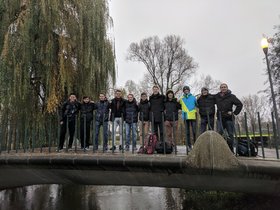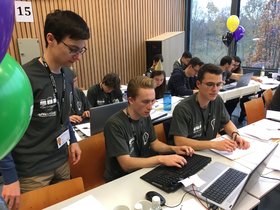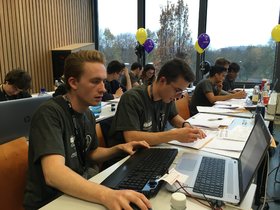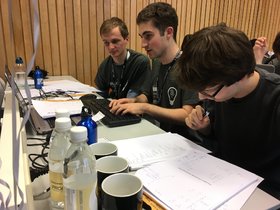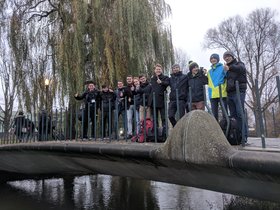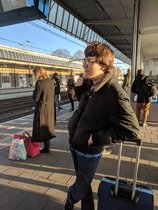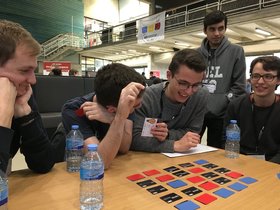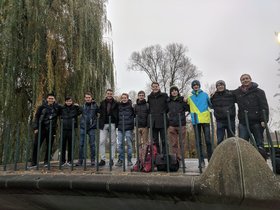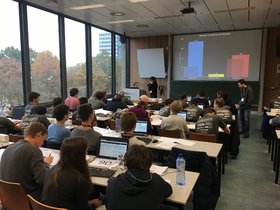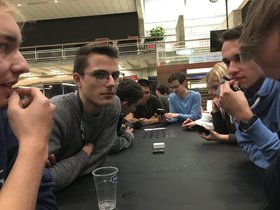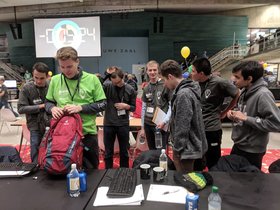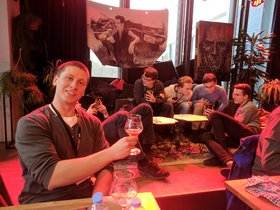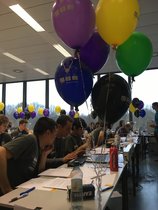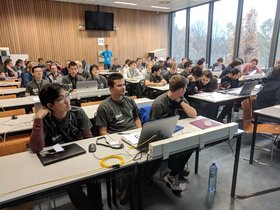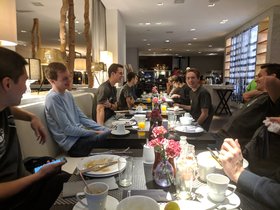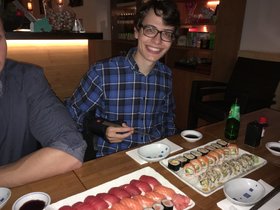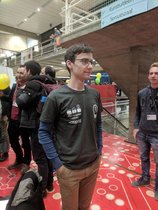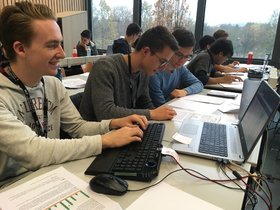NWERC 2018 - In Dijkstra’s footsteps
TUM teams place 5th, 10th, and 13th!
On the weekend of November 25th, 2018, the annual Northwestern Europe Regional Contest (NWERC) took place at TU Eindhoven (TU/e), Netherlands. The NWERC can be thought of as a semi-final of the International Collegiate Programming Contest (ICPC), the most prestigious university-level programming competition in the world. The 122 best teams from universities from all over northwestern Europe travelled to Eindhoven to engage in a 5-hour contest during which they tried to solve as many out of 11 algorithmic problems as possible. The best 12 teams would receive medals and prices, and additionally, the best 5 teams would qualify for the world finals, which take place in April 2019 in Portugal, where they would compete against the top universities from countries such as Russia, China and the US.
TUM was represented by three teams, each comprised of three students of Informatics or Mathematics:
-
Team TUMbling: Florian Leimgruber, Gregor Matl, Lukas Michel
-
Team _=_=>_+_<<_;_(-~{})+[]+(++[[]][+[]]+~[]*~[]) (in the following abbreviated to “Team 42", for obvious reasons): Atacan Iyidogan, Fabian Michel, Leo Tappe
-
Team Incognitum: Florian Jüngermann, Konstantin Pervunin, Tobias Schindler
The teams were trained by our three coaches Gregor Schwarz, Christian Müller and Kirill Martynov.
We began our journey on Friday, November 23rd, with an 8-hour train ride that took us from Munich through North Rhine-Westphalia all the way to the Netherlands. To pass the time, some of us listened to music, some sharpened their skill by solving programming problems, and some tried to explain to the elderly lady next to them what we were about to do (no, we weren’t about to do sports (ha!), yes, it’s computer programming). In the late afternoon, we arrived in Eindhoven and checked in at our hotel. To our (pleasant) surprise, we got free upgrades for our rooms, resulting in very spacious living accommodations. After relaxing for an hour, we walked over to TU/e’s campus for registration, where we received goody bags containing, among other things, a t-shirt, a contestant ID-card, and an information booklet. Then, we had the rest of the evening to explore Eindhoven, grab some food, and spot other contestants throughout the city (look, they have a goody bag, too!). We capped of the night by having a few drinks in the largest of our rooms, which could easily host all three teams + coaches.
The next day (Saturday, November 24th), was quite busy: After having a rich breakfast, we went over to TU/e for the opening ceremony and system introduction. Then, it got semi-competitive for the first time: In order to test that everything works and there are no problems with the setup, a practice session took place, where every team tried to solve three problems under contest conditions. This proved to be worth the while, as we had a bit of trouble configuring our German QWERTZ layout keyboard (props to RBG for supplying us). Upon finishing the practice session, lunch was provided for the participants, and in the afternoon, we engaged in the events organized by TU/e, like pub quizzes and talks from the event’s sponsors HUAWEI and ProDrive. In the evening, there was a joint dinner for all the teams, but some were still hungry afterwards and indulged in the culinary opportunities of downtown Eindhoven. I think it’s safe to say that we enjoyed the day, but of course, there was one thing that was always on our mind: The reason we were here, the actual contest, which would take place the following day.
On the morning of Sunday, November 25th, you could feel the tension and excitement in the air. This was it, the big day we had been training for so much. We knew that the competition was going to be strong, but we also knew that we were well prepared.
An ICPC-style contest works as follows: at the start, every team gets a problem set of 11 problems, all of which are told as some sort of interesting story. Then, the teams have 5 hours of time to read the problems, understand them, think of solutions, and write programs for each problem that take input as specified in the corresponding problem statement and always produce the correct output within the time limit. These programs are submitted via a judge system, where the program is run against hidden test cases to determine if it’s correct and fast enough. Each team has only one computer to work with, so teamwork and coordination is very important. Apart from a 25-page cheat-sheet, which the teams prepare themselves before the contest, and references for the submission languages, no additional material (such as internet access) is permitted. For the NWERC, the submission languages were C, C++, Java, Python 2, Python 3, and Kotlin.
The contest started at 10 AM, and all of TUM’s teams got off to a good start. In particular, TUM’s first team, TUMbling, immediately cemented its position close to the top of the scoreboard, solving three problems within the first 23 minutes of the contest. Our teams continued to perform well, steadily progressing from the easier problems to the harder ones. In the end, the results were excellent:
TUMbling finished 5th, with 9 problems solved, Team 42 finished 10th, with 8 problems solved, and IncogniTUM finished 13th, also with 8 problems solved (click here for the Scoreboard). This earned TUMbling a silver medal and a spot at the ICPC world finals, an achievement that has eluded German universities since “Old Fafhioned Typefetting" from Erlangen-Nuremburg’s Friedrich-Alexander-Universität came second in the 2014 NWERC. Team 42 got a bronze medal, and unfortunately IncogniTUM missed the medal spots by one place, but they still performed exceptionally well. The winner was team “Treenity" from the University of Cambridge. They were the only team that solved all 11 problems, and the only team that managed to solve the super-tough problem D. Overall, it was the best result in TUM’s history of participating in the NWERC, and TUM was the only university besides Cambridge and Oxford to place three teams in the top 15.
After the contest ended, there was a presentation with solution outlines, and an exciting scoreboard reveal (the scoreboards gets frozen one hour before the end of the contest, so you don’t know if the other teams solved any more problems in the final hour). We celebrated the results by having a joint dinner with all three teams and enjoying a little bit of Dutch nightlife later. On Monday morning, it was then time to go home and return to everyday university life at TUM.
It was a great experience for all of us, and a successful one at that. We would like to thank TUM for providing us with the opportunity to participate, and our coaches for all the mentoring and organization they have done.
(by Leo Tappe)
Final Scoreboard
Problemset
Solutions
